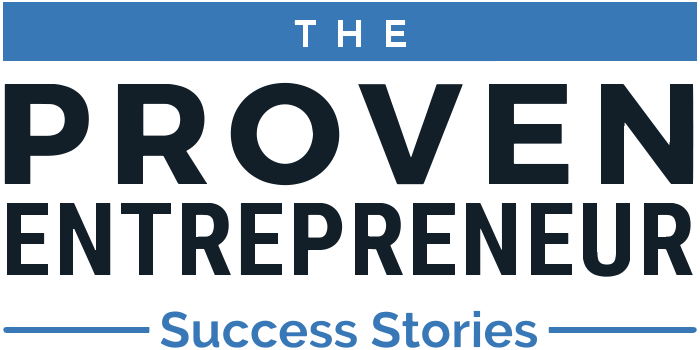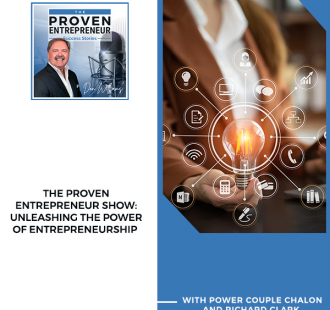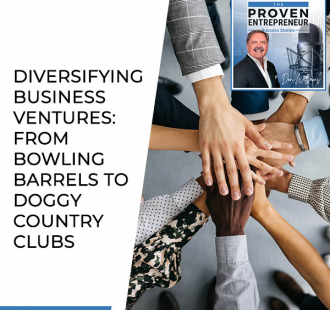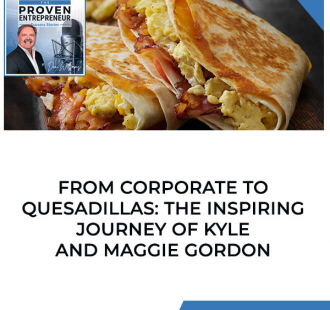It’s never too late to start your business! Joining Don Williams in this episode is Lisa Laporte CEO & Executive Producer of TWiT TV. Lisa started her business after a significant corporate career in accounting at the age of 35. Now, she’s 53 and still thriving in the industry. Lisa also opens up about her struggles rising up the ranks in a man’s world and why it’s important and necessary to speak up and be vocal when you need to be. Tune in as she shares the valuable lessons she learned throughout her entrepreneurial journey with practical tips for aspiring business owners.
For information on how to work with Don visit Work With Don Williams
You can also reach out to Don Williams at https://donwilliamsglobal.com
Please join Don and his businesses in support of St. Jude’s Children Research Hospital in its Mission to cure Childhood Cancers. You can donate to St. Jude at stjude.org/donate
WATCH THE EPISODE HERE
LISTEN TO THE PODCAST HERE
IT’S NEVER TOO LATE TO START YOUR BUSINESS WITH LISA LAPORTE
I am so excited. I have a podcasting expert as our guest. Lisa Laporte, welcome to the show.
Thank you. It is great to be here.
I am thrilled to have you. She is with TWiT TV. Some of you smart people out there are going to know what the TWiT stands for, but Lisa, why do not you tell us?
TWit TV stands for This Week in Tech. We are a technology podcast network. We put out twelve shows. Most of them are weekly. One is twice a week because it is attached to our nationally syndicated radio show called The Tech Guy. We have been doing this since 2005. It is nice to be able to finally say I work at a podcast network and I do not have to explain what that means anymore. I do not have to say, “Let me explain it to you. It is new media,” because everyone knows what a pod is now. We have broken through that hurdle.
It is amazing to me how many people in the world prefer to get content through podcasting.
It is an intimate experience too. You get to know the host. They will bring their ideas to the table. Some of it can be fun or informative, but we try to blend the two. We have been very successful at it and we enjoy what we do.
I am so happy that you are here. I am going to take you all the way back to little Lisa. When you were five years old up through high school or the house where you were raised, and that is different for a lot of different people, but whatever that was for you, was there an adult who set an entrepreneurial example for you as a young girl?
I did. My grandfather was an entrepreneur. They did not have a lot of money, but he partnered with people. He was a people person and always wanted to go out there and find things to do. He owned a grocery store in town with a silent partner. He was able to manage and run the entire store. I followed his career when he then moved from where I was born and raised. He decided to move to Reno because my grandmother loved all the flare of casinos back then. He ended up running another company there, and that inspired me when I was young.
I did not know if I wanted to be an entrepreneur at first. Initially, at five, I wanted to be an astronaut. When somebody mentioned, “You do not want to be a homemaker?” It is because that was the thing when I was a child, I said, “I don’t.” I initially set my sights on accounting, which is interesting. I really loved numbers. I was phenomenal at Math and Science growing up. I went into a finance and accounting career. After cutting my teeth in that industry and reaching my goal of wanting to be a corporate controller by 40, and I hit that at 35, I decided that if I am going to work this hard, I want to work for myself.
Always follow your gut.CLICK TO TWEET
I became an entrepreneur then and decided to consult for businesses for 5 or 6 years. I then ran into TWiT TV. It was new media. Nobody knew what a podcast was then. I was like, “What is a TWiT?” I remember being approached by one of my CPA firms going, “You got to check out this business.” I was like, “What are you talking about?” I checked it out and I immediately fell in love with the business. I was intrigued by it and decided to partner with the founder and take that to another level.
I kept my own consulting business for two years into this journey until I gave it up, but then I started my own agency a couple of years ago because I am a serial entrepreneur. I like to have my fingers in a lot of things and that happens to a lot of us. Having that initial entrepreneurship starting with my grandfather inspired me later in life when I realized I can do it. I will admit that it was scary to leap and take that first challenge to do my own consulting business. I walked away from a six-figure job. I was the breadwinner and I was raising my son, but I said, “I am doing this,” and I did it. I never looked back.
I want to put some emphasis on a couple of points in that part of your story. You became an entrepreneur at 35, which to the non-entrepreneurial world or new entrepreneurs might seem a little late though I know many entrepreneurs who launched in their 50s and even 60s. It is never too late. In fact, the experience that you had in finance all the way up to controller I am sure has been extremely valuable to you in your entrepreneurial journey.
The founder of TWiT TV and the host of a big syndicated show, I do not know him personally but I am going to presume he is creative. The fact that you have diverse skills, things that he is very good at but maybe you are not quite as good at and vice versa, is a secret to success and entrepreneurship. Do not hire a bunch of people who look act, walk, and talk like you.
Hire people that have different skills. It is like if we were putting a football team on the field, we would have somebody who could play quarterback and somebody who could block. They wear the same uniform but they have different skills. Those are two great points. From your childhood, tell us about your first job or first entrepreneurial venture, or whatever it was where you received compensation from somebody else.
My first job receiving compensation from somebody else was when I was nine when I started babysitting, and then at ten, I figured that was not good enough for me and I had a paper route. I was compensated well from that. Also, if you put the papers on the porch, you received better tips. I started working at a pretty young age and learned that you can make money doing this. I kept my paper route until I turned sixteen and could go out in the real world and make money. I have worked at Jack in the Box, mom-and-pop stores, and anything to get by in high school to make ends meet, because I wanted things in life. My family said, “If you want them, you are going to have to work for them.”
My work ethic started at a very young age. I started running my first office at eighteen and became an assistant controller in my early twenties. I constantly built on learning. For the people out there that are young and getting out of college, they can become an entrepreneur. I do not feel that 35 was too late for me because the reality was I did not have the experience. I had some experience moving up, but having worked at one company that started out at 4 or 5 people and when I left had over 300, and I had multiple jobs there for ten years. It gave me the experience as well as the confidence to break out on my own.
When I was there, I took on one side client that let me cut my teeth in becoming an entrepreneur. I originally started out helping people with their accounting and their backend. When the economy started to tank and the dot-com explosion happened, I ended up having at the end of my five-year consulting career the title of CFO at three companies. I had 30 entities under my purview and I had a staff of two bookkeepers that I would come and dump stuff on their plates to figure it out. I quickly realized then that I want to run companies.

Start Your Business: Accounting is unfortunately looked at by some companies as a necessary evil, instead of realizing it is the backbone of your company. You need sales and you need accounting.
I was acting as COO and CFO and had the experience of what it would take to go to the next level. For me, I needed that full experience to break out and move on my own. I started getting paid at nine. It made me successful where I was. I always had a couple of jobs in college and high school. I was willing to try everything. I never said no. If somebody in a company said to me, “We need someone to try this or do this,” I was fearless and said, “I can try that. I can do it,” so I did.
Becoming a consultant and walking in and seeing that you need more than accounting help here, you need operations help, finance help, and all of these things, and having worked in different roles in several companies, I was able to pull together those resources and help companies achieve their goals and take it to the next level.
I do not think that is late at all to start. I opened my first company at 26. I came from the sales side. That is a good place to come from to be an entrepreneur because a lot of sales will mask other problems. If you have a ton of money coming in, you can manage some other challenges. After my first year preparing the first corporate tax return, I could not spell P&L. I knew nothing about any of that. I only knew how to bring in a lot of money.
The only other part I knew about finance was to not let any money go, bring as much as you can, and keep everything that you can, which is Finance 101 anyway, but there is an awful lot beyond that that will certainly help. Looking back across your career, share a hard lesson. It can be something that was painful mentally, emotionally, or physically at that time, but now that some time has passed, you look back on that event and you are like, “It was painful, but it was the best thing to happen for me to get to where I am now.”
I love hearing what you said about being sales and not knowing finance because after I answer this question, I am going to talk about how I started in finance in growing companies and then transitioned into sales, and became into both of those realms. The one thing I do want to put out there, especially to young women because I am a woman and I am not ashamed to say this but having grown up in a man’s world because we are going back to that point, is always follow your gut.
When you feel your voice is not being heard in the company you are working with and you feel like you need to speak up more, please do. Bring your ideas and concerns to the table. Do not ignore them because I did do that as the corporate controller when I ended up leaving to start my own business. Part of it was being in accounting.
Accounting is unfortunately looked at by some companies as a necessary evil instead of realizing it is the backbone of your company. You need sales and accounting. Having worked in both, I have a tremendous amount of respect for both divisions. I was dumped on with a lot of work and I was not given the resources I needed.
I spoke up but I did not speak up loudly enough, so if I could go back to my 30-year-old self, I would be more vocal. I would be extremely clear on what is needed to accomplish goals instead of taking on the extra work and trying to make it all happen without the right resources. That was probably one of the most painful experiences in my world, but from that, I decided to cut my teeth and become an entrepreneur. It ended up being both a blessing and a curse.
Don’t oversell or overpromise anything.CLICK TO TWEET
The one thing I would tell everyone is if your gut is telling you something is not right or you feel like you are not getting what you need in a particular work environment, speak up, be vocal, and be loud. I feel that women are moving forward at that pace. I am not a shrinking violent so if I am telling you I struggled with some of that, I feel like I needed to be more vocal. Speak up when you need the resources to do your job effectively. As I said, it was a blessing and a curse because it ended up launching the entrepreneurial portion of my life.
That is typically the way blessings go. I have great judgment. The flip side of that is I am judgmental. There is a positive and a negative and they go together. It is how that works. You have this deep, pureblood pedigree in finance, but somehow, you also picked up what many people will consider being the opposite skill of sales. Tell us how you crossed that bridge. How did that happen?
I read between 8 to 10 books a month, and that does not count all the podcasts I listen to. I listened to several of your episodes before I agreed to do this. I am a lifelong learner, so being unafraid to try things was part of it. At our company, I stepped into sales. I took over running this company several years ago. We only worked with one outside agency.
For me, to try to grow my podcast network, I need to know where sales are and only have one outside broker. I would be like, “How are sales going for the next quarter?” Typical sales would be like, “You are going to be sold out. We have everything. We are killing it and crushing it.” I would go into the quarter and I would be 40% sold. I would be making all of these decisions based on what my outside sales team was telling me and then me putting those projections in.
I love sales. You have to be optimistic. You have to say things like that, but the reality came down to I had too many missed quarters and goals from having one outside broker, so I went to my business partner and said, “I have never done sales before, but I have owned my own consulting business for six years. I have also advocated for myself to try a bunch of things at companies and I was successful at it, so I am going to put a goal on the board, break our exclusivity contract, set up a sales kit, an ad kit, a rate card, and jump into sales full of boar.”
My goal was to close $1 million the next year. We were doing about $2 million or $3 million at that time. I broke exclusivity in October and in December, I signed a $25,000 test with one client. It was so successful. I closed almost a million-dollar deal with that client for the next year. They bought it the entire year. Having had this huge success and then starting to pitch like crazy to everybody, the reality is it took me about eight months to close another decent-sized deal of a few tests.
I made a lot of mistakes. I tried a lot of things, but the one thing I applied to this process was integrity. I decided I was not going to overinflate what we can do. I was not going to oversell or over-promise anything. What I promised people was we were going to guarantee these impressions if not deliver more because our ads are embedded, so our rate cards were discounted slightly on downloads. I was going to guarantee a qualified audience so we started to survey the audience to find out more about them.
We were also going to guarantee the right impressions and we will get you in front of our audience. To me, it was all about super-serving our audience. I am only going to sign companies with high integrity that have products and services that will benefit my audience. That became my focus. Did I make a lot of mistakes? Yes, and I learned from them and realized that we treat everybody the same. We do not discount a rate card. We layer in value add, which is bonus ads with our advertisers. We also do a lot for our sponsors.

Start Your Business: If your gut is telling you something’s not right or you feel like you’re not getting what you need in a particular work environment, speak up, be vocal, and be loud.
I would say the first couple of years were rocky to start, but once we start to find our rhythm, all we have been doing is improving our process and maintaining that integrity, which is why we are very successful now. Also, I know the backend so I understand how finance and sales work. Unfortunately, the rest of my sales team drives my continuity team and my accounting team nuts but I know how to handle both, which is fun.
I have a couple of things I want to be sure that everybody gives enough emphasis to. You had one sales outlet. In all of my years of sales consulting and sales coaching, I am always on the opinion that you should always hire two or an army, and nothing else makes any sense. I certainly do not want to do one. I do not understand three. The reason we want to do at least two is you want at least two data points so that if channel one is delivering phenomenal results and channel two is not, you have some reality to your data, and then anytime you can get a whole army of people selling, the more you will sell.
Two, and this probably should have been one, was the fact that you approached the market and the business from a position of integrity. We are going to do what we say and say what we do. You are talking to ad sales, which as a general rule, rates with the public about automobile sales. As a general rule, the public does not look at that with the highest esteem.
The thing I have found in my selling career and being the top salesman in the country at age 19 and 20 was I am brutally honest. Honesty is in such short supply. People recognize it immediately and can’t help but be attracted to it because it is rare, so tell people the good, the bad, and the ugly as long as it is true. They won’t penalize you for the bad. They will reward you because you have been brutally honest with them.
The last point I want to be sure that everybody heard was this. You approached it as, “I am going to help people.” I am a firm believer that if you want to sell a lot, stop selling and start helping. People want what will make their lives, their businesses, their families, and themselves better. If you provide a solution that will do that and can help them do that, frankly, they do not care about their money. It can’t be ridiculous.
You can’t charge them ten times the market rate, but as opposed to what they want, their money has no value to them and they will gladly trade you their dollars. I know that sounds a little silly. Attend one of my sales training and you will go away thinking, “That is how it is.” They do not care about their dollars. They care about what it is they want. I love those three things. I think that only people who come into sales from a non-traditional route learn from that perspective.
I did not jump into sales without speaking to a bunch of sales agencies, talking to people, and doing my research because I am not a natural salesperson. I decided to apply the same integrity in business to my partners. I do not even call them clients. They are our partners. Before I even pick up a call or get on the phone with somebody, I have researched what they are doing and I have an idea of who they are. We vet anybody before we talk to them.
I have my team pull a one-sheet where we take a look at who the partners are, what they are up to, what are they doing, and how do they rate, and then when I get on the phone with these people, I am always doing a dive into, “What are your goals? What are your needs? What are you trying to accomplish? What have you done that has worked? What have you done that has not worked?” People are surprised. They are like, “No one has ever asked us this. They usually ask us how much money we have to spend and what is our timing.” To me, those are two very valid and important points to know too, but I start with wanting to know who they are. I want to get to know what their desires are.
The reality of being a CEO is you make decisions daily with 2-5% of the information.CLICK TO TWEET
I agree with you. The money comes into it. I do not even want to talk money. I always want to talk about what you said. How do we fill a need that they have and what are their goals to accomplish with advertising with us? The first thing I heard from everybody when I said I am stepping into sales was, “Used car salesman. You are going to be a politician now.” Honesty is lacking and I wish we could apply that, especially in podcast sales.
I have an agency too, so I take on clients and I go out and buy for them. When I reach out to people and the first thing they say is, “Our minimum is $50,000. Tell us how much money you have and when you want to start.” It is like, “I need to have a conversation because I am vetting you for my client and there is integrity here to be had,” but I agree with you. People will spend money with you if you show them what you are going to do, if you are going to resolve a need, and if you are going to bring them the right thing.
My focus is always on if it does not serve my audience, it is a full pass for me. I say no a lot. Here is a good example to apply to my integrity. I had a client reach out. It was an agency. They were like, “We have this client. They have $500,000 to spend. What can you do for us?” We vetted that. They had two and a half stars on Amazon.
The reviews were weak at best, so I was willing to get on the phone with the agency to say, “These are the reviews we are seeing. Are they doing something to improve their product? Are they coming out with a phase two that is going to be better? I would like to see what they are doing.” The agency had the nerve to say, “They are not doing anything to improve the product. We are just throwing more marketing dollars at it.” I said to the agency, “It is a full pass for us.” They said, “We have $500,000.” I said, “It is a full pass for us because it will not benefit my audience to talk about a subpar product.” I would love to continue to see that across the board.
I would love to see that too. I do not know if you know, but my second book is titled Romancing Your Customer. I see such direct parallels between the romantic and the customer journey map. It is unbelievable. Many sellers, whether they are B2C, B2B, C2C, or B2G, they want to say, “My name is Don. How much money do you have and when can you give it to me?”
The romantic journey would be the same thing as if I had met my wife and said, “My name is Don. Can we get married on Tuesday?” I am pretty sure she would have said, “You are weird. That is way too far and fast. Move along,” but yet, in a commercial application, sellers think that that is normal when they hear the business version of, “You are weird. Move along.”
When we do things from the other person’s point of view or when we bring some romance to the relationship, things happen and it is almost magical. It is like, “We are doing a lot more business and people are loving it.” I can’t emphasize enough to see it from the other person’s point of view and then act on that perspective. It is not good enough just to see it.
You have to act on it to do what is best for them. What about a warp speed moment? Was there some time in your career when things were going along pretty well but then all of the sudden, you implement a new strategy, made a new hire, some external event happen, and all of a sudden, you have this hockey stick of growth? You were like, “I did not know. It could be this good and fast.” Do you have a warp speed moment that you could share with us?

Start Your Business: People will spend money with you if you show them what you’re going to do, if you’re going to resolve a need, if you’re going to bring them the right thing.
I would probably say one of my first steps into sales at TWiT, I did have a warp speed moment once. I understood the cadence of how sales worked and I started to get my teeth into it and made all my mistakes. Breaking that exclusivity, we did start to project up in sales. I would say after the first year I stepped into sales, we started to grow by leaps and bounds because I opened it up. I work with 30 different agencies and I have a sales team now. We went into total warp speed and started to grow and blossom as a network. That was probably the biggest upside we had.
Believe it or not, when the pandemic hit was probably another one. We realized very quickly, I can’t say it was at first, but two weeks into the pandemic, we lost 60% of our business. Being a fully ad-supported network, I realized we were not diverse. We were too one-dimensional. The first huge growth we had was me stepping into sales, breaking exclusively, and hiring an army. That did it. The second growth in our sales process was when the pandemic hit because we realized very quickly we were too one-dimensional and an ad-supported network only.
From that, we launched our Club TWiT in which we offer all of the content in our shows ad-free. We have also added to that a Discord channel in which our fans can participate. Also, they get bonus content, so they get before and after the shows. They get a lot of extra things but we did not take away from our ad-supported side of things because that is how we make our money.
Having launched Club TWiT has been fun. We have been able to do AMAs. We are testing new shows there. There are all these extra little things and we have an amazing place for people that are in tech and geek like-minded people get to hang out and have a good time. That became one thing we have launched. We also started adding ad-free content on Apple subscriptions for people who just want one show. We started to diversify our network and what we do, and it made us think outside the box and be creative again. I feel like that was another growth for us, especially for me in my career at TWiT.
The reality is being a CEO, you make decisions daily with 2% to 5% of the information. You need to do a good job. In the pandemic, I had no data to go on. It birthed creativity. That is what a lot of people should be looking at instead of, “Everything went away.” It was the time for people to become creative. That was another growth for us and we are still diversifying from it. I believe it jump-started us from thinking beyond doing a pod to what else we could do. Having our studio in this giant network, we can do a lot more and it has opened that creativity up. That was brilliant.
As you speak about a pandemic, that may be the most important economic catalyst of the past years because so many companies that are very active with entrepreneurs all over the world took a hit, but now are so much stronger. The world is not back to normal but at something less than normal, their sales are way up.
I have had people say hospitality. I am like, “Some hospitality.” I have some good friends who have 26 restaurants. At the end of 2021, I was like, “How are things?” They were like, “We are at 15% year over year.” I was like, “Do not you know you were supposed to go out of business?” I loved his answer. He said, “I did not like that plan, so we did something else.” Many times, it is just don’t quit. Step in the batter’s box and swing the bat. The worst thing that happens is you miss the ball, but maybe you get a hit. You do not know.
You can’t miss them all if you do not take those shots. The one thing young people as well as adults need to realize, especially if you are in sales or you are an entrepreneur, you are going to fail more than you succeed. Get used to it. It is true. If you are afraid of failure, it is probably not for you, but the reality is I fail way more than I succeed. It makes the successes feel sweeter when I do make them. I can be honest with you and say, “I could pitch 30 people and not close the deal,” and then I start looking at it like, “How did I do it? What am I doing? What am I doing wrong? How do I craft this?” I then close five in a row.
You’re going to fail a lot and it’s okay.CLICK TO TWEET
Sometimes, the reality is timing and how it is. You are right on that. If you are afraid to be creative, and I have seen people close up their shops because they were afraid to be creative and try, or they might have been exhausted. I do not know everything that people are going through, but I want to emphasize, especially to young people that you are going to fail a lot, and it is okay, especially when you are learning something new, so do not be afraid to fail and do not consider that to be defeat.
We do a poor job of educating young people even on the definition of success and failure. The public sees those as opposite concepts, when in fact, that is not true. Failing is part of succeeding. The best attitude is I win or I learn, and learning is slower winning.
I heard you say that on your show and I loved it. I am trying to reiterate that to my nineteen-year-old son who is in college. He is like, “This is hard.” I am like, “It is okay. That is how you learn. You have to try things.” That is huge and people need to keep hearing that
Many times, the best learnings happen out of what we would call failings. We are not as present and not as cognizant of what is happening. We are just enjoying the rollercoaster. We are having fun on the ride. There is nothing wrong with that, but where we have deep learning is in the failings. We have done about 100 of these episodes. I am a long-time entrepreneur but it appears that the entrepreneurs who have had huge failings, cataclysms, looked into the abyss, and fell over. They have also had these monumental successes. I will figure I have empirical data to speak, but anecdotally, I am going to say it appears that the depth of a failure is offset by the height of a win.
If you are experiencing a failing and it is painful, look for a big win to come. Do not quit. Keep going. I want to put you in a time machine. I want you to take it all the way back. You gave us a little nugget on if I was talking to my 30-year-old self. I am going to take you all the way back to your twenty-year-old self. If we put you in the time machine, send you back, and you had a minute or two to share a couple of pieces of advice, grab your twenty-year-old self and say, “These two things will help you go faster, farther, and better and listen up,” what would you tell yourself?
I would tell myself to slow down and listen. Practice active listening more because back then, I was super smart. I was running a company and an assistant controller at a young age. I had a sense of me that I felt like I knew a lot and I knew everything. I would tell myself to be more humble, to listen more, and to finish my education younger instead of later. I started and stopped school several times. That would have been another thing I would have told myself, but it is down to active listening and not being afraid to take risks.
I had passed, at 27, on a small startup because I had landed this job as an assistant controller. I was chatting with one of the tenants in our building and they said, “You have to join this.” I was a little nervous. I was married. I did not want to give up a stable job. They were trying to woo me to be their fifth employee. I passed on it.
Three years later, they were bought by Cisco Systems. The janitor was a multimillionaire. I realized that it was hindsight of 2020. I realized I missed an opportunity, so I would tell myself to be bold, to apply more active listening, and it is okay to finish your education early and maybe put a career on the back burner. That would probably be what I would tell myself back then. I would also tell myself to take that job.

Start Your Business: If you’re in sales or you’re an entrepreneur, you’re gong to fail more than you succeed.
I got a couple of things like that. I should have been invested here or should have done that, but you live and you learn. That is how it goes.
That is the learning part.
How would our audience reach out to you?
If you are interested in our network, you can reach me at Lisa@TWiT.tv. Once again, that means This Week in Tech. What’s fun is that when I first started working at TWiT, I would tell people, “This is Lisa from This Week in Tech.” My founder came out and he heard me saying that. He goes, “It is TWiT.” I said, “Do you know how many times I have been hung up on when I said I am calling from TWiT?” Ask your IT consultant, MSP, or CTO if they know who we are. You will know who we are, but if you are curious about our network, check us out.
We do twelve podcast shows. The reality is they are all named after what we do. If you are interested in tech, This Week in Tech is our flagship show. If you are that busy working entrepreneur and you are looking for something for that quick hit in tech, I would recommend Tech News Weekly. It comes out on Thursdays. It is an hour-long. It is a great way to know what is going on in the tech world without feeling like you have to be in the tech world. We are fun. It is entertaining and our hosts are all tech experts. Check us out there. If you want to get in touch with me, it Lisa@TWIT.tv. I answer all my emails. I am always looking for good partners and people that are interested in learning about what we do.
That is all for this episode. Lisa, thank you so much.
Thank you for having me.
IMPORTANT LINKS
ABOUT LISA LAPORTE
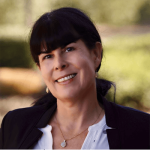 Lisa Laporte is an experienced professional who has worked in various industries.
Lisa Laporte is an experienced professional who has worked in various industries.
Having worked as CFO, consultant, founder, and CEO, Lisa has a strong understanding of the various aspects of running a business and what’s required to excel at your job. She’s been able to build significant experience in various types of business, such as startups and is also talented at building successful teams, using business development to establish quality partnerships, and generating income. Lisa Laporte feels confident that she’s up to the task of running a business and has had the opportunity to see how a company functions on various levels.
At 33, Lisa Laporte began her entrepreneurial journey, mainly by starting her own consulting agency. Lisa had spent many years working and established herself as a professional. While working, Lisa created an extensive network of connections she was able to rely on when she launched her business. Thanks to these connections, she was able to create a thriving consulting business. One of Lisa’s main focuses during this time was working with small businesses in order to streamline their companies and work toward higher levels of success. At the highest point of her consulting career, Lisa Laporte was the CFO of three companies, oversaw twenty different clients across and array of industries, and had other bookkeepers working for her.
Today, Lisa Laporte works as the CEO of both TWiT.tv and Artisanal Agency. While juggling both of these roles takes an incredible amount of work, Lisa finds her work incredibly satisfying and would not want to do anything else. Lisa understands the immense importance of taking risks in business and adhering to strong values of integrity of hard work. She’s excited to be able to help out others as they launch their own podcasts or work in one of her companies.
For information on how to work with Don visit Work With Don Williams
You can also reach out to Don Williams at https://donwilliamsglobal.com
Please join Don and his businesses in support of St. Jude’s Children Research Hospital in its Mission to cure Childhood Cancers. You can donate to St. Jude at stjude.org/donate
